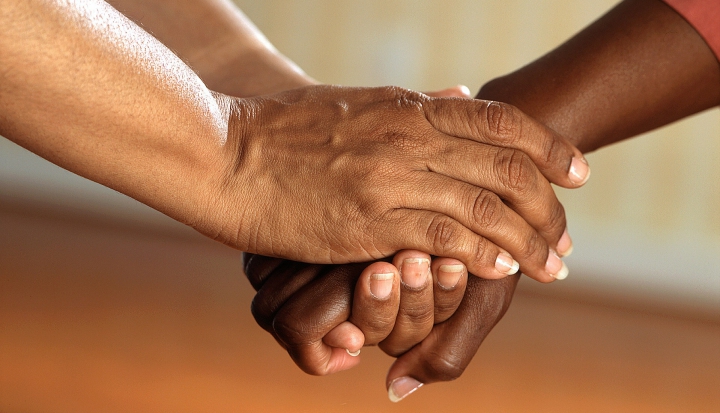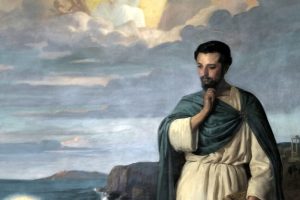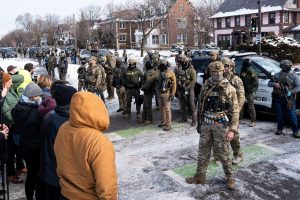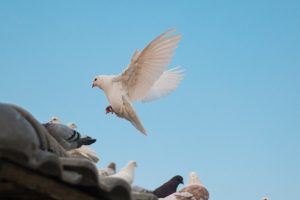Antiracism training shouldn’t just be a requirement for leaders to work in the church, says Catherine Meeks. Instead, she envisions a church in which the work of dismantling racism is an integrated part of every parish and on the agenda of every Sunday school teacher, pastor, and director of religious formation. Learning about racism and its effects on the community and the soul should just be a regular part of spiritual formation, she says, not a requirement to check off as complete after a weekend of training.
In the Episcopal Diocese of Atlanta, that’s starting to happen, particularly since Meeks took the helm of the diocese’s Anti-Racism Commission in 2011 and the commission changed its name to the Beloved Community: Commission for Dismantling Racism. In six years the commission has become a beacon, drawing the faithful from multiple Christian denominations as well as other religious traditions to participate and learn how to effectively address the problem of racism.
Meeks envisions a day when the commission and the center she leads aren’t even needed, because Christian communities will just understand the work as a normal part of Christian formation. For now, the newly opened Center for Racial Healing as well as the commission continue to serve as a resource for those interested in spreading the good news. “I don’t know where God’s going to take that work,” Meeks says. “I just trust that we’ll keep on getting the vision, energy, and resources to keep growing it however it needs to.”
What is the Beloved Community?
The Beloved Community is the biblical notion of creating a community in which folks are accepted, loved, and treated as they need to be treated. The concept has been around for a while. It’s an idea that Martin Luther King Jr. used.
Here in the Episcopal Diocese of Atlanta, we changed the name of our antiracism commission to reflect this idea. Our former name, the Anti-Racism Commission, said we were against racism. But so what? We instead called it the Beloved Community: Commission for Dismantling Racism. Our mission is to create the Beloved Community in which people can be accepted, cared about, be honest about who they are, and be treated as equal human beings.
That’s what the church ought to be: a place where we can be honest and truly seek God and what that means for us. In order to do that, we have to dismantle oppressive systems. Racism is the one we chose to dismantle.
Was the name change effective?
Our diocese has experienced massive transformation in terms of the response to the commission’s work. We do trainings for ordained and lay leadership in our diocese who are required by the Episcopal Church to participate in dismantling racism training. People hated it. Now this fall we’re opening an entire center for racial healing. That’s how much progress we’ve made.
That would have never happened six years ago, because the commission was not seen as a resource. Now we are a resource for the entire Episcopal community. Other dioceses from around the country have been in touch with me, and some of them have come to our diocese to participate in our training or consult with us to get ideas about moving their own work forward.
Is your work ecumenical?
We are open to sharing with anybody, anytime, and we invite anybody to come and participate in our work. But we have been very careful to stay focused on the dialogue in the Episcopal Diocese of Atlanta.
What often happens is that we try to start something that’s ecumenical, but it gets diluted. What we are doing here will stay focused on the idea that this is our family and we need to fix our mess. If you’ve got a problem in your family, you don’t go get the neighbors to come sit at the dinner table to talk about it with you.
We’re not trying to fix the whole world. We’re trying to fix our family, and then we can tell others what we’ve done. That’s the main approach. That approach has brought all kinds of people to our table, and they’ve been welcomed. But we got our own mess to fix. Our church is pretty racist, and we’ve got a lot of work to do.
You’ve described the trainings as Eucharist-centered. What does that mean?
When I became chair of the commission, our trainings looked like this: There was a little prayer said at the beginning, and then all day long there were all these activities, talks, and different steps with no mention of faith. There was no mention of God, just one activity after another.
You could have taken that training to any corporate office, and they never would have known that it had anything to do with the church. At the end of the day, there was a little prayer: “We got something important to do. God, may you bless us.”
We’re Christians, so we thought, why not start by affirming we’re Christians, a community of people who have committed to be on a journey with each other and to care about one another. We have a serious illness called racism. We can do something about it because we have this commitment.
The Eucharist is our best way to make that affirmation. At the beginning of every training, we celebrate the Eucharist. Then the day flows from that. Throughout the day we ask people to look for the places where they are most aware of God’s presence.
We’ve made the training about spiritual formation. Because otherwise it’s just another day of talking about bad systems in America. You go home, put all your papers in a drawer, and you don’t have to think about them anymore. We’ve reimagined this training as a part of our spiritual formation as opposed to just a day you’ve got to go check off so you can be ordained.
Do you see the Holy Spirit at work in your trainings?
We had a man who was very distressed at the beginning of the training. As soon as the trainer started talking about white privilege, as a white man he got very distressed and said he resented anyone using those words in his presence.
The trainers encouraged him to stay through the day. By the end of the day, the man’s testimony was about how much he had learned and how much his eyes had been opened.
We have people arrive with their arms folded, in absolute hostility about the whole thing because they don’t want to be there, but it’s mandated for people who are going to be church leaders. They don’t want to have to do it. Some people just don’t like to be told what to do and some are worried about having to confront their prejudices.
It’s an opening day for a lot of people. They don’t want to deal with race. They think civil conversations about race aren’t possible. They expect that people are going to be making them feel guilty. That’s not the approach to the day at all. It’s a big surprise to them. There has been serious transformation.
You organize memorial martyrdom pilgrimages to the sites of lynchings in the South. Why?
Lynching happened in America, and it continues to happen: Police officers are murdering young people of color, particularly young Black people. Extrajudicial killings. That what lynchings were.
We have tried very diligently as a society to not deal with that piece of our history. Anything we try to deny just keeps on coming up in its own way, ruining parts of yourself. That wouldn’t be happening if society would face it head on.
We felt that, particularly for us here in Georgia, where 600 lynchings are documented, that we needed to raise that history up to the forefront, remember those people, and acknowledge that this happened and has injured everybody, Black people and white people.
The same kind of unjust system that allowed lynching to happen continues to exist. That’s why we have mass incarcerations, the death penalty, and 21st-century police killings. It’s all the same kind of energetic thread. There is a notion that, somehow, Black folks are less-than and deserve to be treated in ways that express that.
That’s why a Black person is five times more likely to be incarcerated than a white person.
We want people to think about that, study it, understand it, and realize that we have to pay attention to the whole piece and not just the piece we’re most comfortable with.
Why is acknowledging the past essential for racial healing?
You can only heal what you’re willing to own. Why struggle for healing if you’re just saying it doesn’t have anything to do with you?
If a white person says, “I don’t want to talk about this. My family didn’t own slaves. We think everybody ought to have a right to be free,” you’re neither owning your privilege as a white person nor your complicity in a system that oppresses people and benefits you. You’re just trying to separate yourself from it.
Maybe your family didn’t own slaves and you do want everybody to be free, but you’re part of a system that you are identified with no matter how you think or who you are. You don’t have to become guilty, you just have to own the reality that this system exists and was constructed to favor you and people like you more than people who are not like you.
It’s that kind of acknowledgment of the realities of the history, remembering what happened here, whether you had anything to do with it or not. None of us lynched anybody. I didn’t have any experience of that. But that history impacts me, it impacts you, and it impacts everybody. It’s a piece of history that we need to bring up to the air to have the light of God shine on it so that it can be transformed.
We had slavery, then we had the era of reconstruction, then Jim Crow laws, and then the civil rights struggle. And here we are in the 21st century. Why can’t we make the progress we need to make and get this settled? We keep going back to ground zero. We just keep trying to get somewhere without bringing all the stuff with us. It is a heavy burden. I understand that part. It’s a heavy burden unless you’re willing to acknowledge it and accept it and let God’s light shine on it.
How can a parish get started on the work of dismantling racism?
The very first thing people need to do is just start talking to other people and form a community. You don’t want to be the one person standing up trying to say, “We’re going to organize this conversation and everybody come.” It needs to grow out of a small conversation, like you talking to three or four other people and then getting together to brainstorm about what is the best way to take this to a larger group.
Typically, people want to hear one, two, three, four things we can do. Well, those things may have worked fine at one parish, but they may not work at all for you because your community is different. You need to think about the model and ask if that’s the best model for you.
I think that films, stories, and book studies are some of the best ways to begin to get into this discussion. It separates it a little bit from personal stuff to watch a film and talk about it. You can be a little bit more willing to engage in a conversation because you’re talking about somebody else’s story. “We’re going to read this book together as a parish or watch this film and talk about it.” These are the less painful ways to begin the conversation.
You need some support. Don’t just go barreling out by yourself trying to do something. There should be small conversations, and then the group decides on a next step. It’s very important to get the leadership in any parish on board: the priest, associate priest, and the lay leadership, like the parish council or vestry.
We invited some church leaders to Atlanta for a day of conversations about race. We asked, “What are some of the difficult things about having a conversation on race? What can we do about it?” We spent the whole day talking about those two questions. We engaged in some conversation with a large group, then we broke into smaller groups and talked about it at the tables. In the afternoon, we talked about what are we going to do about it, and it was a similar format. That sounds really simple, but it is very helpful to just keep the conversation going.
This article also appears in the October 2017 issue of U.S. Catholic (Vol. 82, No. 10, pages 18–22).













Add comment